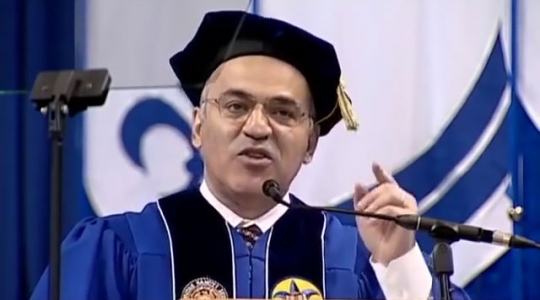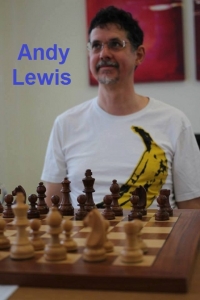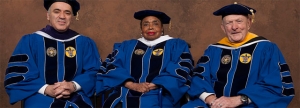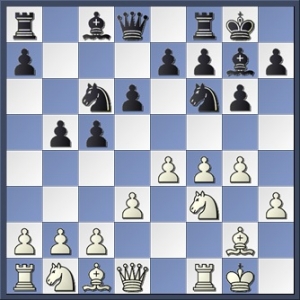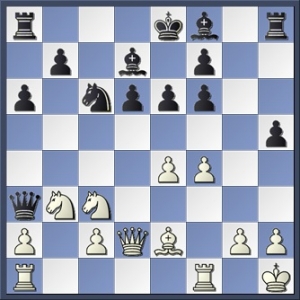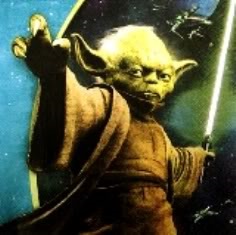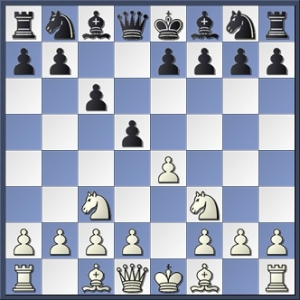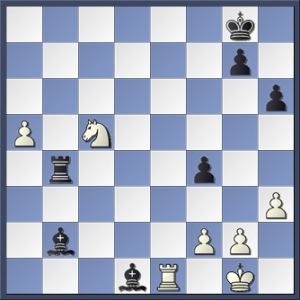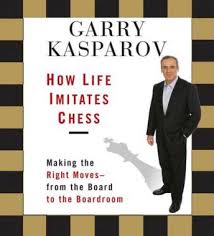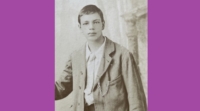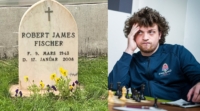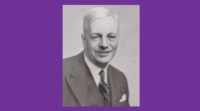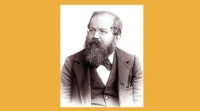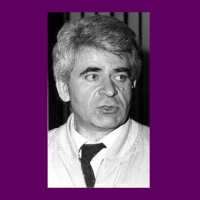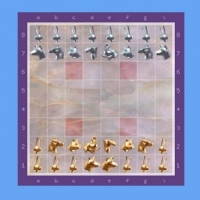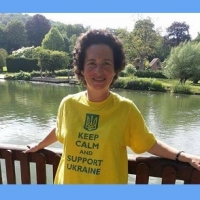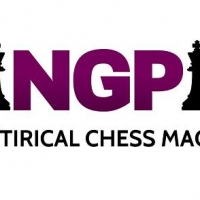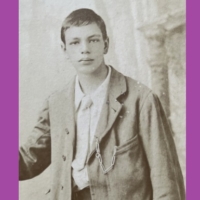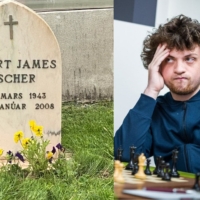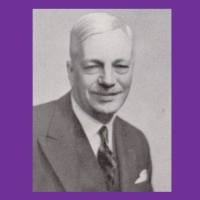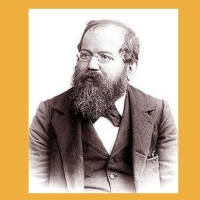Why Life Does Not Imitate Chess
King: How bloodily the sun begins to peer
Above yon bosky hill! The day looks pale
At his distemperature.
Prince: The southern wind
Doth play the trumpet to his purposes,
And by his hollow whistling in the leaves
Foretells a tempest and a blust’ring day
King: Then with the losers let it sympathize,
For nothing can seem foul to those that win.
Henry IV Part 1 [5.1] 1-6
We’ve all been there.
You have just resigned a game that you cannot believe could be lost. That preposterous opening gambit. Those ridiculous weakening pawn advances. That absurd knight sacrifice to open your kingside. If only you had spent less time inwardly laughing at his Neanderthal attack, you might have had more time to deal with the crisis when it came and mete out the justice due to this moron.
At the post-mortem, you expect a sheepish opponent to apologize for his undeserved swindle, only grateful for any crumbs of wisdom on the finer positional points of the game. But he’s not having any of it. His original attacking play. His tactical vision. His flawless calculation. He’s God’s gift to sacrificial chess. And you need to respect that.
You attempt to explain how it might, indeed should, all have been different. But this blockhead can’t even begin to understand. You start to argue, but soon reflect how pointless, what a sour consolation is a victory at the post-mortem.
The equivalent in chess to the droit de seigneur is the entitlement of the winner to say whatever they like about their victory, no matter how outrageous. The loser’s duty is to lie back and take it, hoping that this exquisite pleasure will be their turn next time.
But take this line of reasoning to its logical conclusion.
What if, aged 22, you became the youngest ever World Champion? What if the person you defeated already had behind him two successful defences of the world title, and who even now has (arguably) the strongest tournament record of all time with a stupendous 160 first place finishes?
What if you have held the world title for 14 years over 7 matches against 3 different opponents? What if, between 1986 and 2005, you were ranked World Number 1 for an astonishing 225 out of 228 months?
What if you remain ʻone of the most influential and famous chess players even today, a full 10 years after [your] retirement from professional chess’?1 And what if, even though retired, you can still return at your leisure to demolish (once again) the 1993 pretender to the world title and current England Number 3 by a devastating 8.5-1.5 margin?2
Wouldn’t this victory march give you the right, to express your opinions, no matter how uninformed, about your games, other games, or indeed any conceivable subject, and expect a reverential, indeed awe-struck audience?
Well actually, there is one person who appears to think just that.
Who is he? Did you really need to ask!
Part 1: A New Beginning
Whatever shall I do next? After deciding to change direction at the summit of an exceptional career, this is a question which at some time will surely confront most Kingpin readers. Commentator (John McEnroe and Richie Benaud), TV presenter (Gary Lineker and Sue Barker) coach (Boris Becker and Ivan Lendl), team manager (Roy Keane and Mark Hughes) and journalist (Simon Hughes and Angus Fraser) are all conventional, perhaps even safe, choices. Especially so, since their second career discipline maps neatly onto the sport or specialization which was the subject of their first.
However, when Garry Kasparov quit professional chess in 2005, his career took an unorthodox course. He is now a frequent and acclaimed speaker at international managerial conferences, delivering inspirational lectures to gob-smacked CEOs on, of all things, Business Strategy.
Didn’t you know?:
‘A seminar with Garry Kasparov is a unique chance to get hands-on coaching from a man with a lifetime of high-pressure peak performance to share. These customised sessions focus on getting the participants to evaluate their own decision-making process, to find their strengths and weaknesses and, as Kasparov puts it, “to upgrade their mental software.” Working in groups and directly with Kasparov, the seminars are an instructive and entertaining tour through dynamic decision makings scenarios, each prepared especially for the client.’3
Heavens! He’s even written a book on this subject: How Life Imitates Chess: Insights into life as a game of strategy (2007). And a visitation from Mr Kasparov? That’ll set you back a surprisingly reasonable €40,000. Plus first-class travel and accommodation. Naturally.
Kasparov: the scholar. No tutorials, textbooks, lectures, essays or examinations were required for his honorary Doctorate of Law from Saint Louis University (July 2015)
Where did Kasparov get this expertise? Garry actually has a degree,4 graduating from the Azerbaijan Pedagogical Institute of Foreign Languages in 1985c (p.22). However, Business Studies do not appear on his résumé. And his business management experience is a little light, largely confined to his role as CEO of his consultancy firm, the ‘Office of Garry Kasparov’. But no one has a deeper insight into chess strategy than Kasparov. That must count for something, right?
Kasparov: On Objectives
Kasparov describes a fundamental strategic axiom of Chess and Life:b
‘The strategist starts with a goal in the distant future and works backwards to the present. A Grandmaster makes the best moves because they are based on what he wants the board to look like in ten or twenty moves in the future. This does not require … calculation … Then he works out the step-by-step moves to accomplish those aims … These intermediate objectives are essential.’ (p.24)
Zounds! So that’s where I have been going wrong all my life. I needed intermediate objectives. In order to achieve my childhood dream of Olympic stardom as a middle distance runner I should have first focused on a nearer objective such as the National Championships. Perhaps I might have considered joining a running club? Or even bought a pair of running shoes? Damn it! Maybe I could even have just once walked to the local curry house, rather than order a home delivery.
Kasparov is not wrong to say that grandiose schemes are only realizable through achievement of smaller objectives. And to some, say a nervous YTS on the morning of his first interview as a deputy assistant trainee manager at McDonald’s, this might be salutary advice. But do the suits actually pay to listen to this? Task decomposition (the art of breaking down big, scary objectives into smaller, do-able chunks) is a fundamental management principle. The suits already have armies of business analysts and PRINCE-certified project managers to help out with this dross.
Kasparov illustrates this axiom with his game against the Belarusian GM, Alexei Fedorov at Corus 2001.
Fedorov – Kasparov
Corus, 2001
position after 9 g4?!
As White in a variant of the Closed Sicilian, Fedorov launched a premature kingside attack with 9 g4?!. But any initiative rapidly dissolved. He soon lost his d3 pawn, allowing Kasparov’s rooks to penetrate down the c-file. He resigned on only move 25, never even landing a glove on his opponent.
This was a pathetic game, and an atrocious waste of the White pieces against a celebrated opponent. But what Kasparov wants to say is that behind the rubbish chess moves, Fedorov made a far deeper strategic mistake:b
‘He quickly made clear that he did not intend to show too much respect for the august surroundings, or for his opponent … Ignoring the rest of the board he launched all his available pawns and pieces right from the start … What Fedorov failed to do was to ask himself early on what conditions would need to be fulfilled for his attack to succeed. He decided he wanted to cross the river and walked right into the water instead of looking for a bridge … relying on the competition to make a serious mistake is not a viable strategy.’ (p.25)
Outrageous! Attacking the World Number 1 without all of his pieces developed, hoping to induce a blunder. What a nerve these young upstarts have got!
Actually, the applicability of the ‘strategic axiom’ to chess is less clear cut than Kasparov would have the suits believe. There are some brief notes to the game in MegaBase by Luke McShane. You’ll see that, if White can only mildly temper his desire to rush forward with his kingside pawns, by interposing 11 Nc3, he gets a more playable version of the hack attack. Indeed, after 11…Rb8, we’re back in the main line. Since Kasparov’s critique is intended to be strategic, rather than tactical, the delay by just a couple of moves should not matter too much. Yet it does. Spassky scored a couple of famous victories in his 1968 match against Geller in this line, which is still the subject of controversy today (see Fighting the Anti-Sicilians, pp.88-90).d
Secondly, consider an opening which has made sparse but celebrated appearances in World Championship matches: the Najdorf Poisoned Pawn.
Spassky – Fischer (11), 1972
Short – Kasparov (4), 1993
position after 12…Bd7
Its debut by Fischer in game 7 of the 1972 World Championship saw Black close to taking the full point, but a fighting defence by Spassky held the draw. Game 11 saw the enterprising 14 Nb1!?, the fruits of excellent preparation by the Spassky camp, enabling their champion to score his second and last victory in the match. Its third and (to date) final appearance was Game 4 in the 1993 Kasparov-Short match. The boy from Bolton tried another interesting idea 14 Nd1!?. But this presented Kasparov with no difficulties, and (as World Championship games go) a comfortable victory. Unwilling to risk a repeat treatment, Nigel switched to the 6 Bc4 Anti-Najdorf for his remaining games in the match.
The Poisoned Pawn can never be an uncontroversial opening choice. With 7 f4 White has just prepared e5 to bust open the centre at will, and Black is already behind in development. Yet with 7…Qb6 Black is prepared to commit further tempi in pursuit of what appears to be nothing more than crude materialism. The pawn advantage is, of course, only part of the point: Black’s deeper and more insidious intent is to permanently destabilize the White queenside. Still, whatever your take on this head-case opening, it has to be said that two of the all-time greats have been prepared to defend it at the highest competitive level.
But does the Poisoned Pawn pass the test posed by Kasparov’s strategic axiom? In other words, what ’interim objectives’ has Black achieved which justify the potentially suicidal pawn hunt? The development of knight on f6? The e6 pawn, creating space for …Be7 enabling Black to castle in only more two moves? The a6 pawn covering b5? Seriously? And when Kasparov pushed his queen out to b6 against Short, was that move really ’based on what he wants the board to look like in ten or twenty moves in the future’ (p.24)?b
Don’t make me laugh!
That’s just the trouble when you try to discuss chess strategy at the Yoda level. Essential for the realization of long-term goals, intermediate objectives are. Sounds totally profound. But just try to apply it in practice and you’re left with nothing on which to hang your light-sabre.
Yoda: his philosophy was not a critical success factor in Kasparov’s career.
Why I beat Karpov
How Life Imitates Chess contains a number of reflections on the author’s seven-year battle with Anatoly Karpov for World Chess supremacy. So Kasparov clearly wants us to see these as having more than autobiographical significance. For example, Kasparov explains his first victory against Karpov (1985) and subsequent successful defences of his title (1986, 1987 and 1990), as the direct fruit of the hard lessons learned in their first match (1984):b
‘The world champion had been my personal trainer for five gruelling months. Not only had I learnt the way he played, I was now deeply in touch with my own thought processes. I was increasingly able to identify my mistakes and why I made them … This was my first real experience of questioning myself instead of relying on my instincts … It would not have been possible to stay at the top for so long without the education Karpov gave me about my own game and my own weaknesses.’ (p.11)
Is it the humility of Garry’s admission of his own fallibility? Or the magnanimity of his tribute to Karpov? Whatever the reason, there is clearly something phoney about this explanation. If Kasparov’s 1985 victory was actually attributable to an improved learning ability from his own games, this would imply either: a) in 1985 he was significantly better at learning from his mistakes than Karpov; or b) that between 1984 and 1985 he substantially improved in this ability.
Actually, neither of the above holds up. Karpov was no slouch when it came to learning from his own reverses, and even published a book on this subject.e The most pronounced example of this is when he binned his 1 e4 repertoire after his 1985 World Championship defeat. Kasparov even concedes this:b
‘[Karpov] recognized that at key moments his style would not fit with the sharp positions [1 e4] created. He learned and adapted and stayed near the top for many, many years because he was quick to recognize that he needed to change.’ (p.34)
A chess super-GM in the post-Informator world is a learning machine par excellence: assimilating ideas from his games, other people’s games, books, newspaper articles, overheard washroom discussions, whatever. It is exceptionally unlikely that Kasparov could have risen to Number Two in the World in 1984 without having that ability to a marked extent.
But, even some of the greatest players have shown a stubborn streak. The best known example of this is the younger Fischer’s unhealthy addiction to the Two Knights Variation of the Caro-Kann.
Fischer – Petrosian, Keres et al.
Candidates, 1959
This earned himself a dismal +2 =2 -3 score as White in this line in the 1959 Candidates, by the end of which the Soviet contingent were queuing up to play him in this line. Fischer, it can be said, indeed did need to ‘learn how to learn from his mistakes’. But there is no equivalent rite of passage in the pre-1984 career of the early Kasparov.
Does a chess player need to learn from his mistakes? You bet! Airlines, physicians, sportsmen, all professionals, all companies have an identical need. Former English table tennis star Matthew Syed, who famously choked in the 2003 Olympics,5 is no stranger to failure. He writes:
‘Learning from mistakes is the leitmotif not of the majority of successful institutions, but of all successful institutions.’ f
Kasparov is not wrong to claim that ‘he has learnt from his mistakes’. However, his claim that he acquired that ability largely through his 1984-85 match with Karpov lacks evidence. And Kasparov is completely wrong to think Chess has anything special on this subject to teach Life.
Why Karpov Deserved to Lose
In addition to Kasparov’s newly heightened awareness of his own shortcomings, he also ascribes Karpov’s downfall to a clear strategic error:b
‘When I first played for the World Championship in 1984 … it was quite a shock, when I quickly found myself four loses down, only two defeats from a humiliating route …
If ever there was a time for a change in strategy, this was it … I switched to guerrilla warfare … reducing risk, waiting for my chance. My opponent … fell in with my plan. He wanted to teach the upstart a lesson by scoring … 6-0, so he played cautiously instead of pressing his advantage, and going in for the kill.
Karpov was … inspired by his predecessor, Bobby Fischer [who] en route to the title had scored two perfect 6-0 wins against world class opponents. Karpov had it in mind to … imitate this legendary feat when he altered his strategy against me. But … [this] … turned out to be a serious mistake.
The match dragged on for month after month … At last the dam broke. After surviving game 31 … I won game 32 and went on the offensive. Karpov looked exhausted and I started to press harder… I won game 47 in crushing style. Could there be a miracle? Exactly at that moment the organizers decided the players needed a break … Despite this unprecedented decision I also won the next game. Suddenly it was 3-5 and all the momentum was on my side.
Then, in a bizarre twist, on 15 February 1985 … Campomanes responding to pressure from the Soviet sport authorities, called a press conference, to declare that the match was cancelled.’ (pp.9-10)
So Kasparov’s masterstroke was to emulate Karpov’s tedious style of play, and bore him to death. And this strategy was working brilliantly – until those neo-Stalinist toadies in FIDE came to Karpov’s rescue, just when he was on the point of defeat. What a travesty!
But did Kasparov really see Karpov’s approach in the first K-K match as a ‘serious mistake’. Karpov’s style of riskless chess, the micro-accumulation of advantages, had taken him to the top of world chess in 1976 and kept him there for 8 years, winning one Candidates’ final and two world championships. At 4-0 up in his third final, what possible reason could he have to deviate from an approach that was clearly working?
And what did Kasparov’s ‘guerrilla warfare’ actually amount to? A comparison with cricket might help here. A tail-end batsmen in the fourth innings of a losing Test match, his side facing an insurmountable lead, know exactly what is expected of them. His side cannot win, so he plays to stave off defeat for as long as possible, simply blocking the ball however he can. There is nothing else to be done. And hasn’t every weekend Swiss hacker at some point in his career, anxious for a final round point, simply kept playing moves, in full knowledge that his position does not justify the quest for a win, desperately hoping that ’something will turn up’? There’s no shame in that, but it’s not some clever new idea.
Only Kasparov could have the temerity to dignify his blatant Micawberism with the title ‘strategy’.
And in what manner was his ‘strategy’ a success? Kasparov certainly deserves credit for containing Karpov to only one win between Games 10 and 48, while winning three himself. Yet Karpov missed a number of opportunities to press for a win, the last and easiest of which occurred in Game 41.
Karpov – Kasparov
Game 41: K-K Match 1, 1985
position after 32…Rxb4
In this position, Karpov played the routine 33 Rxd1, allowing 33…Bd4 with an active bishop. Karpov plugged away until move 71, but never got close to the win. I suspect Karpov will go to his grave wondering why on earth he didn’t just immediately push his passed a-pawn.
33 a6! threatens 34 a7 and queens. To appreciate the strength of this move, you just have to find one trick: 33…Bb3 34 Nxb3 Ra4 35 Nc5 Ra5 36 Re4! Kf7 37 Ra4 Rxa4 38 Nxa4 and now 38…Bd4 might seem to save the day, blocking the passed pawn and trapping the knight on the rim. But after 39 Nc3!, White wins the bishop and the game is up.g Routine stuff at super-GM level.
But what has this mistake got to do with Kasparov’s so called ‘guerrilla warfare’? Throughout his career, Karpov had shown consistent accuracy with this type of short-range calculation: it’s just a fluke that he did not play this move. That would have given him victory by an overwhelming 6-1 margin. And the right forever to lecture Kasparov on why purely negative play is not a valid approach in World Championship Chess!
And does Kasparov really see himself as the injured party of the FIDE decision to cancel the match? Well, Kasparov certainly likes to play the victim. And he’s so good in this role, his audience often gets carried along with the act. For example:h
‘Chess … cost him dearly. “When you have to fight every day from a young age, your soul can be contaminated. I lost my childhood. I never really had it. Today I have to be careful not to become cruel.” ’
Reading the excerpt above, you would imagine it was by some Bronx street-kid – not a feted, wealthy celebrity, living it up on five star hotels and first-class flights since his early twenties. Honestly, you would think that someone made Kasparov play chess!
The 1984 World Championship had the potential to be the match of century. An established and seeming invincible World Champion playing the seeming unstoppable rising star, the youngest ever Challenger. Each with their highly distinctive and original style of play.
The first K-K match was reduced to a ludicrous slow-bicycle race, an intellectual version of the Myth of Sisyphus. Can’t Kasparov recognize that he has some responsibility for the farce?
When the match was terminated, Kasparov still needed three wins to Karpov’s one. By any objective standards, even an off-form and clearly fatigued Karpov was still favourite. And Karpov had a good track record in this type of situation. Against Korchnoi in the 1974 Candidates’ Final (played under the ‘best of 24 games’ rules) he cruised to a 2-0 lead after 6 games, even moving further ahead to 3-0 after game 17. But Korchnoi suddenly punched back in games 19 and 21, leaving the match tantalizing close at 3-2. Karpov drew Games 22 and 23 with no apparent difficulties, and offered a draw in a completely won position in Game 24 to clinch the match.
The World Championship 1978 was almost a repeat, except even more dramatic. The first World Championship to be played under the ‘first to 6 wins’ rule, once again Karpov seemed on the cusp of a comfortable victory against Korchnoi, with a 5-2 lead after Game 27. But then Korchnoi won Games 28, 29 and 31 to equal the scores at 5-5. Yet after almost snatching defeat out of the jaws of victory, in Game 32 Karpov easily crushed Korchnoi’s over ambitious treatment of the Pirc Defence, to take the match by the narrowest of margins. How can Kasparov be so certain that this would not have happened once again in 1985?
Here’s an alternative account of why Kasparov beat Karpov. At the start of the 1984 marathon Karpov was a distinctly stronger match player than Kasparov. But, as might be expected of a 21-year-old, Kasparov noticeably improved between 1984 and 1985 and throughout the next decade. Karpov, clearly stimulated by their rivalry, also improved, albeit to a lesser extent (he’s 12 years older than Kasparov). This process reached its apex between 1987 and 1990 with the 12-12 draw in Seville and the 12.5-11.5 Kasparov victory in NY-Lyon.
Kasparov didn’t out-play or out-strategize Karpov. He didn’t demonstrate that a dynamic, aggressive style is preferable to the patient incremental accumulation of positional advantages. He certainly didn’t out-Yoda him.
Kasparov simply outscored Karpov: by a meagre 1.4% margin over 144 games. It’s easy to see that the slightest touch of a butterfly’s wing on that data set could have left Karpov holding off Kasparov until maybe even 1993.
There is no uber-strategic explanation as to why Kasparov triumphed over Karpov: just a lot of micro-explanations.
This stuff is meat and drink to us chess players. But it doesn’t sell books to bored corporate leaders, desperate for soundbites to inspire their minions at the next company rally.
Next Instalment
Ever wondered what genius strategists such as Kasparov see as the fundamentals of decision making?
How does the most controversial decision in his chess career, the 1993 breakaway from FIDE, measure up to the Kasparov gold standard?
And why are chess players so different to normal people: don’t they ever grow up?
Read on: We Need to Talk about Garry, Part 2: Good Decisions
Acknowledgement and Disclaimer
This article claims no credit for original research. All ‘facts’ presented were verified using publicly available sources of information. I thank the many anonymous and unpaid researchers who contributed.
About the Author
Andy Lewis is a former British U21 Chess Champion, has a PhD in Philosophy, but spent most of his working career in computer departments for investment banks. He is semi-retired and lives with his wife and 2 dogs in Manningtree, Essex. This (3 part) article is his third article for Kingpin.
© Andy Lewis 2015

